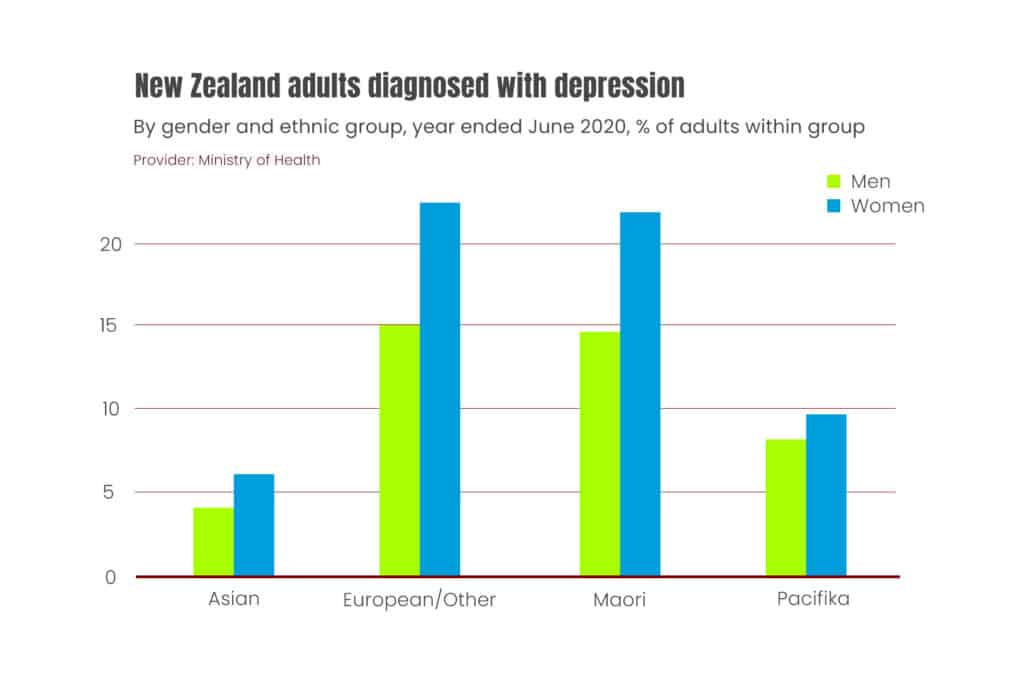
Molly Farrell
Mental Health and Wellness Advocate
Last year the world as we know it changed; not just due to COVID-19, but also due to our response to it with several lockdowns. Today, working from home has seemingly become the new normal. However, it doesn’t look as if we are ready for it.
Research has shown that working from home can increase stress levels and negatively affect mental health. Depression, loneliness and being cut off from family, friends and colleagues are only some of the issues that have surfaced.
To address these issues there are 10 steps that we can do every day, which can also help us prevent future health problems:
- Create a good routine
- Dress for success
- Designate space for certain activities
- Set realistic daily goals
- Set boundaries with those you have to share your space with
- Take regular breaks
- Stay connected with colleagues throughout the day
- Stretch and get outdoors
- Clock off when you are meant to
- Go to sleep at the same time each night
We will look at these steps in more detail in the article and see how we can protect our mental wellbeing while working from home.
No man is an island entire of itself.
― John Donne, Devotions upon Emergent Occasions
Working from home and Covid-19
In adherence to the lockdown response to Covid-19, significant changes have been made to the way we live, more specifically, to the way we work. With health and wellbeing anchoring our political decisions around Covid-19, NZ has implemented tiered lockdown responses which limit social interactions and travel.[1]
Consequently, working remotely has become a new norm. For many of us, our work is now achieved within the safety of our homes, moving our workspace from our company office into our makeshift, dining room office space or bedroom studio.
For many businesses, a level-4 lockdown puts a vast percentage of employees out of action. However, a great number of NZ businesses have been able to adapt to the confinements of lockdown with an abundance of Zoom meetings and Google catch-ups.[2]

These changes bring joy for some but not so much for others; there are positives and negatives of working remotely. One point worth highlighting is that mental health awareness has never had this level of exposure in the corporate setting.
Businesses are required to rethink their health and safety policies to adapt to the fluidity of our workspaces and learn ways to support their employees while working from home.[3]
What are the benefits of working from home?
Saving time and money
Working from home saves us time we would normally spend sitting in traffic or on the bus commuting to work. For some, working remotely can save hours in our day.
Not only do we save time, but we can also save money. No petrol, parking, or bus passes needed. Working from home saves money for both the employees and employers. Research has found employees can save thousands of dollars each year when working from home.[4]
Connecting with family
Seeing the work our family does during the day can be very connecting. Working in the company of our family at home can do wonders to our relationships and external commitments.[5]
Working from home promotes a better work-life balance
Better for the environment
The benefits of eliminating our morning commute are not limited to the individual; working from home does wonders for the environment too. Less resources are needed for transport and our office set-up when we work from home.[5]
Less sickness
Working from home gives us more time to rest, particularly on those days when we are too well to call in sick yet, but too ill to be at work.

Increased productivity
In 2020, Otago University conducted a study of over 2000 individuals working from home. It was found that for 73% of these individuals, working from home either increased their productivity or it remained the same in comparison to not working from home.[6]
The negative impacts of working from home
A positive impact can apply in some scenarios; however, as we have acknowledged, there are mixed reviews around the positives and negatives of working from home. Working from home can be challenging for some and can pose a significant strain on our mental wellbeing.
Much to our appreciation of these concerns, as these changes to our working life continue to unfold, research is continuously being explored on the matter.
A grounding piece of research measured five key factors of our wellbeing over the population of 11 different countries. 78% of participants in this study reported that the Covid-19 pandemic has negatively impacted their mental health.[7]
RELATED — What are 5 Ways to Wellbeing

Lack of work-life balance and stress
As we can see, 35% of participants have noted a lack of work-life balance as a key contributor to poorer wellbeing.[7]
Working from home can be hard, as when doing so, we are confined to one environment for work and play, family time, and down time. Sharing the same space for all of these parts of our lives can make clocking off very difficult. In reverse, a blend of work into our social time and relationships can be equally stressful.
78% report Covid-19 has negatively impacted their mental health
Either way, boundaries between work and life are now blurry, which can contribute to anxiety and stress.[7] We are now required to balance all of our commitments which can make it difficult to prioritise and get things done.
Burnout
Loneliness and depression
Working from home can contribute to feelings of loneliness and depression. Loneliness can be defined as a state of mind which can make someone feel alone, empty, and unwanted.[8] Loneliness can be driven by a lack of socialization which can then interact with our self-esteem and confidence.
RELATED — Introduction to: Depression
A study done in response to the Covid-19 pandemic delves into the relationship between Covid-19, loneliness, and depression. This study, measuring the results of 1000 Americans, reported significantly higher scores of loneliness during the midst of 2020 in comparison to previous investigations on the topic.[9]

With these positives and negatives in mind, there are a few key strategies we can use to mitigate the challenges of working remotely and support the flourishing of the positives.
10 strategies to protect your wellbeing while working from home
Create a good routine
Treat your day as you would if you were heading into the office. You can use the extra time you have in the morning to start your day off well with what works for you. A brisk walk in the morning, some quiet time while having a cup of tea outside, or 10 minutes of deep breathing are all great ideas to start the day with a relaxed nervous system and ease any anxiety you may have.[10]
Dress for success
Designate space for certain activities
If possible, try to separate your workspace from your bedroom. You may like to create a group office space with those you live with or find a quiet corner in your home to set up your office space.[10]
Set realistic, daily goals
One of our greatest motivators is achievement. Set daily tasks that you can achieve each day. Knowing what you are trying to accomplish can help keep you focused and also feel satisfied at the end of the day when you can tick things off.
Set boundaries with those sharing your work space
Take regular breaks
A form of collateral of working remotely is having all meetings and interactions on screen. A recent study by Microsoft highlights ‘online meeting fatigue’ and the increased vulnerability for those working from home.
Taking short breaks is the antidote to meeting fatigue
The findings of this study suggest we should take frequent breaks throughout the day. Jumping from one video call to another can induce different levels of stress. This study found small breaks allow our brain to reset and further mitigate stress levels.[13]
RELATED — Understanding Stress: The Silent Killer
Stay connected with your colleagues throughout the day
We may no longer have the physical presence of our fellow employees, but luckily, we are spoilt for choice with online chatting apps and video calls. Check in with your colleagues frequently throughout the day, as if you were in the office. This will support your motivation and also maintain your social quota for the day.
Stretch and get outdoors
Our bodies are made to move. When we exercise, our brains release endorphins, and we experience a natural boost of happiness. Ensure exercise is part of your daily routine. Whether you go for a walk or join a YouTube yoga or HIIT class, any form of movement is a must.[10]
RELATED — Relieve back pain: 5 Beginner Yoga Exercises, Stretches and Poses
The World Health Organisation also highlights the significance of limiting our screen time and taking regular breaks from the screen throughout the day.
RELATED — Bad posture can impact your health: Getting it straight
Moving outside is a great way to shift your energy and put limits on the amount of time we spend reading, watching, or listening to news that can contribute to anxiety and stress.[14]
Clock off when you are meant to
Make sure you clock off at the same time you would in the office. It can be difficult to finish at your usual time as you are already home and work is now at your fingertips. However, it is very important to prioritise our out-of-work life too.
Lockdown is lonely and if possible, we should use this time to connect with those around us or partake in other activities that make us feel good. If possible, ensure your work email and online platform notifications have been switched off outside of work hours.
Go to sleep at the same time each night
The Sleep Foundation highlights the importance of going to bed at the same time each night. Being consistent with our sleep time supports the regulation of our internal body clock. In turn, it improves the quality of our sleep so we can wake up feeling rested and ready for the day ahead. Finding a sleep routine before hopping into bed can be a great way to ease this flow.
Shut off your devices at least 30 minutes before bed and find a form of self-care you enjoy before bed, and if you are keen to go the extra mile, try meditation before bed to calm down your nervous system.[15]
RELATED — Different types of sleep: which one do we need the most?
There are many positives and negatives that come into play when working from home. It is important to be aware of the potential stress working from home can put on our mind and implement strategies to support us where we can.
For more strategies, guides and suggestions on how to unwind and regain your equilibrium after a long day, you can visit our Relaxation and Mental Health pages.
Mental Health and Wellness Advocate
With extensive experience as a mental health support worker, Molly knows first-hand the impact our mind can have on our physical, emotional and social wellbeing. She has completed a Bachelor’s of Science, majoring in Psychology, and a postgraduate diploma in Health Science, which gives her an opportunity to combine theoretical knowledge with practice.
Molly’s goal and focus is to provide others with education and awareness on how we can improve our mental wellness and of those around us.
References
(1) The New Zealand Government. (2021). Unite against Covid-19. https://covid19.govt.nz/?gclid=Cj0KCQjwnJaKBhDgARIsAHmvz6e9SzWA9d5QodcYehTbE7hj0ukxyLl1G39_AHHh5P9qmNUp1bTmvyYaArv-EALw_wcB
(2) New Zealand Ministry of Business, Innovation and Employment. (2021). Workplace operations at Covid-19 Alert levels.
(3) Employment New Zealand. (2021). Importance of Mental Health during Covid-19.
(4) Flex Jobs.(2021). 6 Ways Working from Home will Save you $4000 or More Annually. 6 Ways Working from Home Will Save You $4,000 or More Annually
(5) Flex Jobs (2021). The Benefits of Working from Home: Why the Pandemic Isn’t the Only Reason I Work Remotely. https://www.flexjobs.com/blog/post/benefits-of-remote-work/
(6) GenLess. (2021). The benefits of working from home. https://genless.govt.nz/stories/the-benefits-of-working-from-home/?gclid=Cj0KCQjwnJaKBhDgARIsAHmvz6e6afgp_XhEzorjwrAY1EgytgAUiSlfxa2HxrQVbjkQijR4-pjHItYaAp1FEALw_wcB
(7) Pearson Clinical. (2021). The Psychological Impact of Working from Home. https://pearsonclinical.in/the-psychological-impact-of-working-from-home/#:~:text=Research%20studies%20show%20that%20the,and%20pressure%20along%20with%20depression.
(8) Very Well Mind. (2021). Loneliness: Causes and Health Consequences. https://www.verywellmind.com/loneliness-causes-effects-and-treatments-2795749
(9) Killgore, W.D.S., Cloonan, S.A., Taylor, E.C., & Daily, N.S. (2020). Loneliness: A signature mental health concern in the era of Covid-19. https://www.sciencedirect.com/science/article/abs/pii/S0165178120312257?via%3Dihub
(10) Blackdog Institute. (2021). Working from Home. A checklist to support your mental health. https://www.blackdoginstitute.org.au/news/working-from-home-a-checklist-to-support-your-mental-health-during-coronavirus/
(11) Scientific American. (2012). Dress for Success: How Clothes Influence Our Performance. https://www.scientificamerican.com/article/dress-for-success-how-clothes-influence-our-performance/#
(12) HubSpot. (2021). How to Work from Home: 24 Tips From People Who Do It Successfully. https://blog.hubspot.com/marketing/productivity-tips-working-from-home
(13) Microsoft. (2021). Research Proves Your Brain Needs Breaks. https://www.microsoft.com/en-us/worklab/work-trend-index/brain-research
(14) World Health Organisation. (2021). #HealthyAtHome- Mental Health. https://www.who.int/campaigns/connecting-the-world-to-combat-coronavirus/healthyathome/healthyathome—mental-health?gclid=Cj0KCQjws4aKBhDPARIsAIWH0JUPK64DW__d9JX7miVDwFkmIpFQOdan2ZxgHhY_H5y6tiMxfWs_ZeQaAud3EALw_wcB
(15) Sleep Foundation. (2021). Healthy Sleep Steps. https://www.sleepfoundation.org/sleep-hygiene/healthy-sleep-tips






